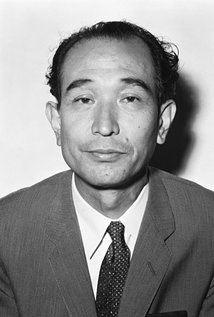
Akira Kurosawa
Writer
Tokyo, Japan
was a Japanese film director and screenwriter. Regarded as one of the most important and influential filmmakers in the history of cinema, he directed 30 films in a career spanning 57 years. Although all of his films were made after the silent film generation, Kurosawa's early years were influenced by narrated silent films with which he grew up in Japan and which left a lifelong impression upon him. Throughout his life he maintained a highly loyal following of actors and production crews. Kurosawa entered the Japanese film industry in 1936, following a brief stint as a painter. After years of working on numerous films as an assistant director and scriptwriter, he made his debut as a director in 1943, during World War II, with the popular action film Sanshiro Sugata (a.k.a. Judo Saga). After the war, the critically acclaimed Drunken Angel (1948), in which Kurosawa cast then-unknown actor Toshiro Mifune in a starring role, cemented the director's reputation as one of the most important young filmmakers in Japan. The two men would go on to collaborate on another 15 films. Kurosawa's wife, Yōko Yaguchi, was also an actress in his second film The Most Beautiful. Rashomon, which premiered in Tokyo in August 1950, and which also starred Mifune, became, on September 10, 1951, the surprise winner of the Golden Lion at the Venice Film Festival and was subsequently released in Europe and North America. The commercial and critical success of this film opened up Western film markets for the first time to the products of the Japanese film industry, which in turn led to international recognition for other Japanese filmmakers. Throughout the 1950s and early 1960s, Kurosawa directed approximately a film a year, including a number of highly regarded films such as Ikiru (1952), Seven Samurai (1954) and Yojimbo (1961). After the mid-1960s, he became much less prolific, but his later work—including his final two epics, Kagemusha (1980) and Ran (1985)—continued to win awards, including the Palme d'Or for Kagemusha, though more often abroad than in Japan. In 1990, he accepted the Academy Award for Lifetime Achievement. Posthumously, he was named "Asian of the Century" in the "Arts, Literature, and Culture" category by AsianWeek magazine and CNN, cited there as being among the five most prominent people who contributed to the betterment of Asia in the past century. His life and career have been honored by over half a dozen international film biographies and film studies devoted to the commemoration of his lifelong contributions to filmmaking and cinema.
was a Japanese film director and screenwriter. Regarded as one of the most important and influential filmmakers in the history of cinema, he directed 30 films in a career spanning 57 years. Although all of his films were made after the silent film generation, Kurosawa's early years were influenced by narrated silent films with which he grew up in Japan and which left a lifelong impression upon him. Throughout his life he maintained a highly loyal following of actors and production crews.
Kurosawa entered the Japanese film industry in 1936, following a brief stint as a painter. After years of working on numerous films as an assistant director and scriptwriter, he made his debut as a director in 1943, during World War II, with the popular action film Sanshiro Sugata (a.k.a. Judo Saga). After the war, the critically acclaimed Drunken Angel (1948), in which Kurosawa cast then-unknown actor Toshiro Mifune in a starring role, cemented the director's reputation as one of the most important young filmmakers in Japan. The two men would go on to collaborate on another 15 films. Kurosawa's wife, Yōko Yaguchi, was also an actress in his second film The Most Beautiful.
Rashomon, which premiered in Tokyo in August 1950, and which also starred Mifune, became, on September 10, 1951, the surprise winner of the Golden Lion at the Venice Film Festival and was subsequently released in Europe and North America. The commercial and critical success of this film opened up Western film markets for the first time to the products of the Japanese film industry, which in turn led to international recognition for other Japanese filmmakers. Throughout the 1950s and early 1960s, Kurosawa directed approximately a film a year, including a number of highly regarded films such as Ikiru (1952), Seven Samurai (1954) and Yojimbo (1961). After the mid-1960s, he became much less prolific, but his later work—including his final two epics, Kagemusha (1980) and Ran (1985)—continued to win awards, including the Palme d'Or for Kagemusha, though more often abroad than in Japan.
In 1990, he accepted the Academy Award for Lifetime Achievement. Posthumously, he was named "Asian of the Century" in the "Arts, Literature, and Culture" category by AsianWeek magazine and CNN, cited there as being among the five most prominent people who contributed to the betterment of Asia in the past century. His life and career have been honored by over half a dozen international film biographies and film studies devoted to the commemoration of his lifelong contributions to filmmaking and cinema.
Akira Kurosawa Movies & TV Shows - Watch Online
